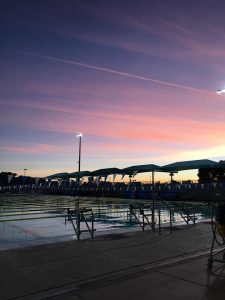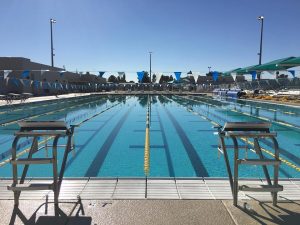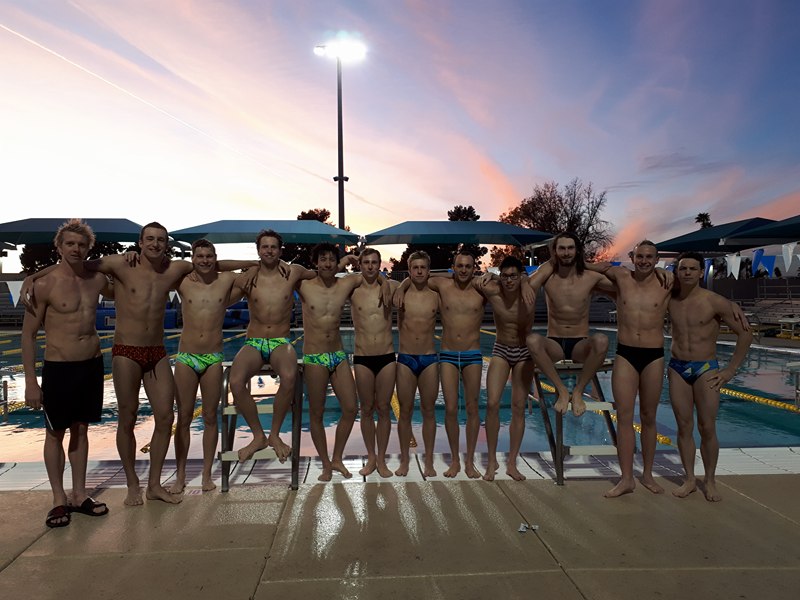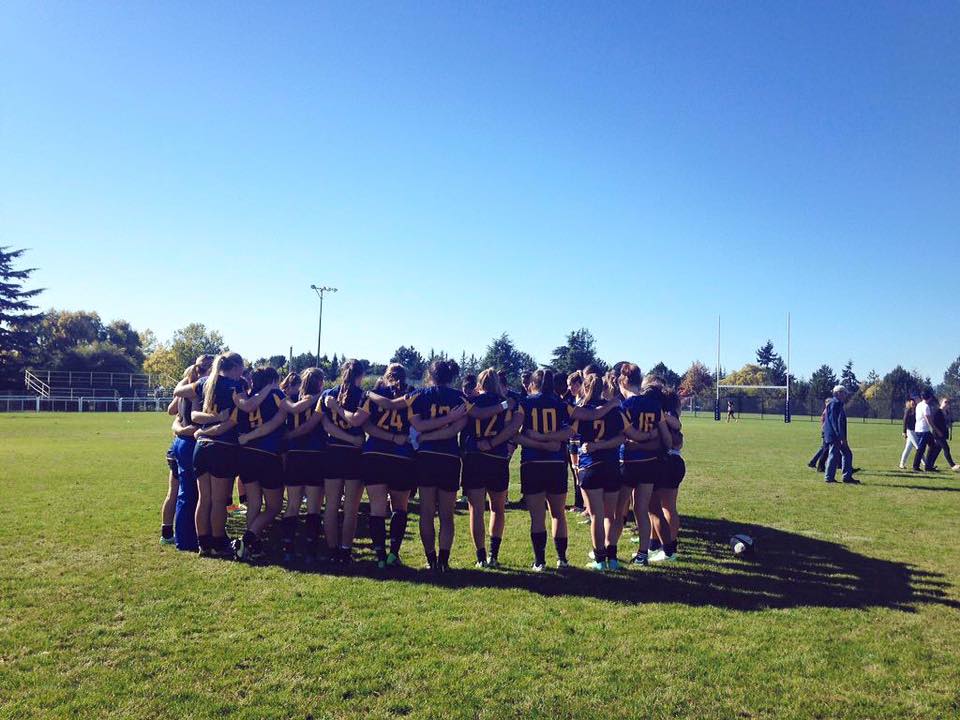Training trip: what athletes learn from the winter holiday that can’t end soon enough
 Recently, my University of Victoria Swimming teammates and I journeyed south from the depths of the Canadian winter for an 11-day desert sojourn in Phoenix, Arizona.
Recently, my University of Victoria Swimming teammates and I journeyed south from the depths of the Canadian winter for an 11-day desert sojourn in Phoenix, Arizona.
For the regular traveller, this might seem like a welcome opportunity to escape the cold and 4:30pm darkness that are typical for this time of year up north. As a swimmer, training in Phoenix offered the opportunity to swim outdoors in the sun and warmth. However, if I’m being honest, I couldn’t wait for the trip to be done, as enjoyable as the weather and hotel were.
The swimming was long, hard, and constant, and good and bad days were inevitable. Although, team members who had a more typical Christmas involving little swimming and a lot of eating seemed to struggle early in particular. (A valuable lesson for those who have training trips coming up in future, make sure you keep fit around Christmas!)
Here are three important things I was reminded of or learned along the way.
1. Keep it fun
 Some swimmers have a habit of making it well known to those around them that their training trip is some sort of living hell.
Some swimmers have a habit of making it well known to those around them that their training trip is some sort of living hell.
Whether it is in conversation with those around them or via something like a social media post of exhausted team members lying about like a sack of potatoes, sometimes the intense level of training in a professional environment with swimming as the sole focus becomes too much to handle for many and they feel the need to tell the world about it in a cry for attention.
In the process, I think they can tend to forget that they are there by choice, and have a wonderful opportunity to improve as athletes in a new and often exciting place such as Phoenix, Florida or the Caribbean, typical destinations for North American sports teams.
Focussing so heavily on the effort required to rise to the challenge of training harder than one may have encountered at any time previously in their lives can easily distract athletes from the fun of spending so much time with close friends and teammates, with their sport of choice the only real task at hand. It’s not war, it’s just sport, so try to keep it fun.
2. Redefine your limits
 How often have you heard “Just do your best, it’s all you can do”? Whether you are an athlete or not, I’m willing to bet you’ve heard it a fair bit.
How often have you heard “Just do your best, it’s all you can do”? Whether you are an athlete or not, I’m willing to bet you’ve heard it a fair bit.
It is popular because it is no doubt important and true, but training trips will help you question and ultimately go beyond what your best is, both mentally and physically.
If you truly believe you have done your absolute best, your future self will be capable of better things than previously, whatever it is you are doing.
Eventually, one might reach the point where they can no longer redefine their limits and continue improving, but in a sporting sense, this level of mastery takes years to achieve. Training trips can go a long way to taking you closer to your true potential.
“I do not compete with the rest of the world. I compete only with myself, for my progress is my true victory.”
– Sri Chinmoy
3. All-round appreciation
Whatever it is you are trying to improve at, I urge you to remember often that your steps toward a better you can’t be taken without the support of others. Of course, it is vital to be grateful for your own gifts of mind and body, for without these we wouldn’t be able to get anything done at all.
Whether you are grateful for a body capable of great feats of athleticism or intellectual performance, or simply for your two eyes that are allowing you to read this, or your mind that allows you to comprehend it, an attitude of gratitude goes a long way to helping with the quest to improve at anything.
Of course, the sole aim of my team’s trip to Phoenix was to improve the team’s racing potential. Focus and swimming with strong intent were essential, but I feel that sometimes athletes and non athletes alike can sometimes neglect to remember that they are not taking these steps on their own, rather the opposite.
The coaches write the sessions, and we must be grateful for that. I mean who really wants to write brutal workouts up on the board on their own all the time? Training partners, colleagues in the water, lift you to the next level, which we must also be grateful for.
You can take it a step further, and be grateful for the airline that gets you there, the hotel that accommodates you, or even be grateful for the opportunity to cross the border from Canada to the US, something people live and die for in other places around the world. Anywhere you look, there is opportunity for gratitude, no matter how beat down you are physically and mentally.
Happy working, training, and studying!
Chris
Thanks to Kaity Gervais for the video






